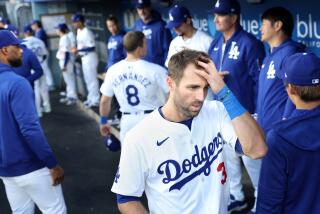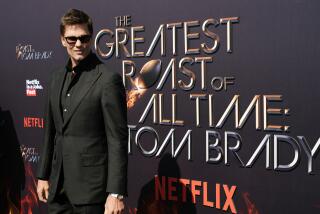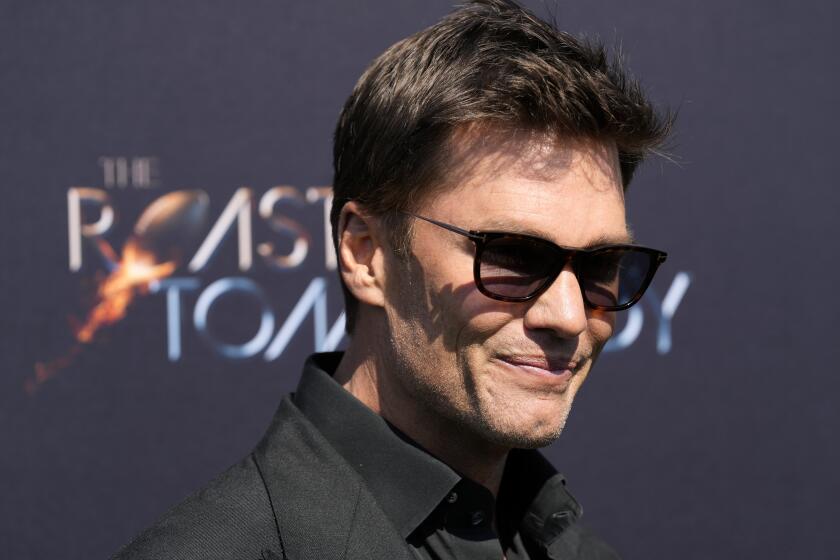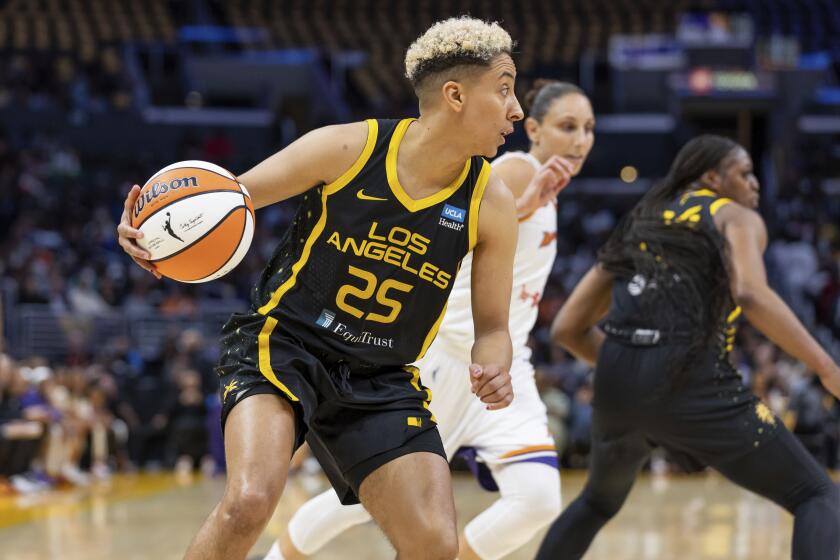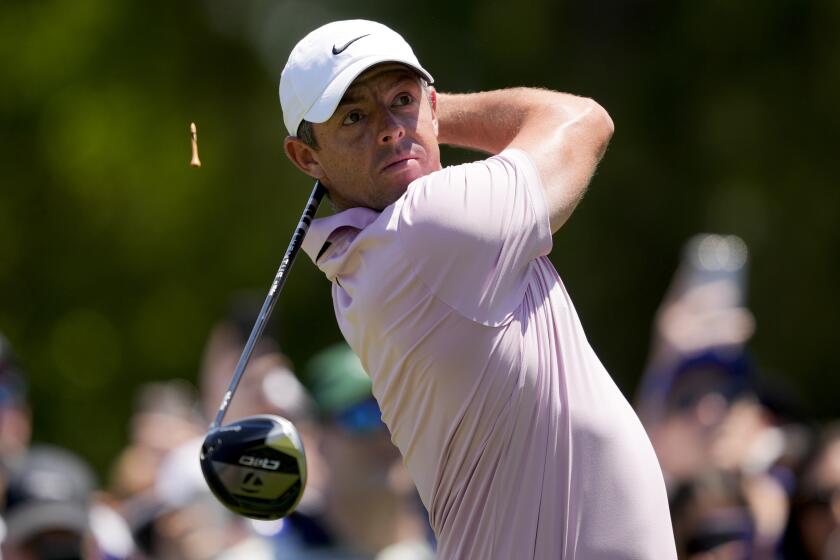The Watcher in the Park
By all rights, we should be having a catch. That’s what I was thinking as I sat parked discreetly out of my 18-year-old’s line of sight, behind a natural peephole in a copse of evergreens on a street that abuts the basketball courts.
Around me the pulsing hum of the locusts sliced the heavy air. Last year’s basketball season was a dim memory; the next one wouldn’t begin for months. This was, unmistakably, baseball weather. In years past, Graig and I would have long since broken out the gloves and lost ourselves in the customary summertime ritual of pounding and oiling. In the process we’d leave the family room redolent of leather and neat’s-foot oil--a tandem scent that evokes dugouts and close-cropped outfield grass and fly balls drifting through an azure sky on a warm summer day.
But not this summer day.
Out on the court, Graig--the unusual spelling is a tribute to famed San Diego Padres third baseman Graig Nettles--set himself, rose on the toes of his size 14 feet and launched the ball in a high, sweeping trajectory. The shot dropped, sending the string net swishing first one way, then the other, then sharply back, like the grass skirt of a hula dancer at the height of her terpsichorean frenzy. A trace of a self-satisfied grin flickered across his face before he coiled himself into a crouch and sprinted toward the basket. With a quick thrust of one of his immense hands, he intercepted the bounding ball just as it was about to stray off the court. Then he dribbled back to the foul line to begin anew.
The watching was bittersweet. I savored my son’s athletic presence, yet despaired at the fact that he no longer cared to perform for my benefit, as he once did with such endearing glee on the ball diamond. In his early years as a Little League pitcher, Graig was given to glancing my way in mid-delivery, a practice that did little for his control and still less for the nerves of opposing batters, who must have wondered what the big lefty with the scary fastball was looking at when he was supposed to be homing in on home plate. More recently, though, my son had grown uncomfortable with my watching him play sports (albeit no more uncomfortable than when I watched him do just about anything, or even when I tried talking to him). Which is why I remained behind the evergreens until he finished and headed for home.
Partly, I consoled myself, our estrangement was a normal stage in adolescence, an expression of my son’s need to map out his own identity. But partly, too, it was an expression of a deeper distance that had crept into our relationship, just as it has crept into so many father-son relationships. It was a distance whose dimensions could be read in the diverging paths of two sports--one in ascendancy, the other in decline.
It’s clear that basketball has overtaken baseball in the hearts and minds of adolescent males, a happenstance most observers attribute to the shrewdness of the sport’s overtures to young America. Basketball was quicker to grasp the concept of sports as show biz, the extent to which slick multimedia packaging would appeal to an MTV audience. This helps explain why, across America, the sharp crack of wood against horsehide has been drowned out by the persistent thump of a basketball on concrete.
And yet, I ask myself, is it coincidence that basketball thrives at the precise moment in history when fathers have all but disappeared from the American landscape? In some cases the dads are gone physically due to divorce or out-of-wedlock pregnancy. In other cases the men are emotionally absent, buried in their work. Either way, we are left with boys who were, or feel, abandoned by their dads.
Basketball, to me, is the perfect game for this grim Zeitgeist, an in-your-face world of slamming and stuffing and “trash talk.” I recall watching a particularly raucous shoot-around among Graig and his friends one day and thinking: This game, it taps something, some sense of estrangement, in the soul of the estranged. For if baseball is Frank Sinatra, basketball is rap--audacious, edgy, a showcase for the machismo of a generation of young men who, deprived of a father’s steadying influence, grew up thinking that they “don’t need nobody” but themselves.
I can’t say precisely when my son began to see himself this way. In memory, it seems as if our relationship went from doting to dissonant overnight. I’m sure it wasn’t actually like that. I do remember being “on his case,” as he put it, much of the time, harping on his appearance or his mouthiness or his driving or his disinclination to commit much of himself to anything in life. One evening he shaved his head. A few days later he came home with a beat-up basketball. His baseball glove took its place in permanent repose on the floor of the front closet.
It occurs to me now that you cannot maintain the same rapport with your son on the baseball diamond when elsewhere in your relationship everything is wrong. Baseball is far too intimate an experience for that. It is meant to be played by fathers and sons who enjoy each other. Where there are no fathers, or there is no joy, there will not likely be baseball. Basketball, on the other hand, is a solitary ritual of man versus hoop or man versus his own physical limitations. Far from requiring a father, it does not even require friends--certainly not for practice. It is the textbook definition of insularity. Freud might say there are times when a foul shot is just a foul shot. Perhaps so. I know only what my instincts tell me: America would be a happier place if there were fewer kids out alone perfecting their jump shots and more kids chasing the fly balls off their fathers’ bats on a summer day.
In the meantime, it is early evening and my boy is once again out there, by himself, shooting hoops. With a sigh, I grab the car keys and prepare to complete my part of the melancholy bargain, observing without being observed. Somehow I can’t get the smell of neat’s-foot oil out of my brain.
More to Read
Get our high school sports newsletter
Prep Rally is devoted to the SoCal high school sports experience, bringing you scores, stories and a behind-the-scenes look at what makes prep sports so popular.
You may occasionally receive promotional content from the Los Angeles Times.
